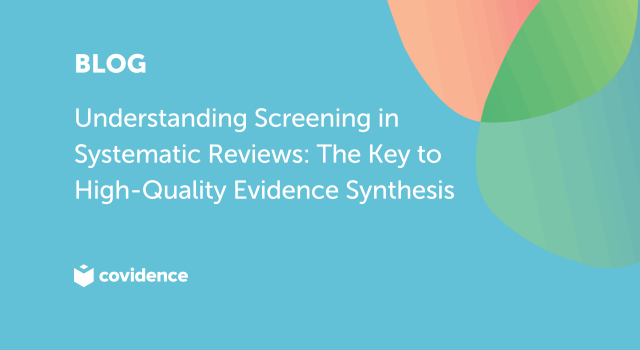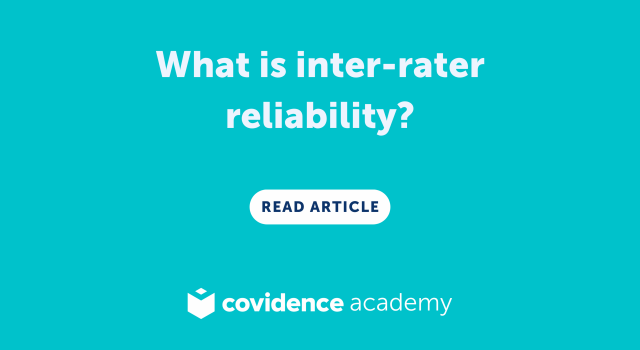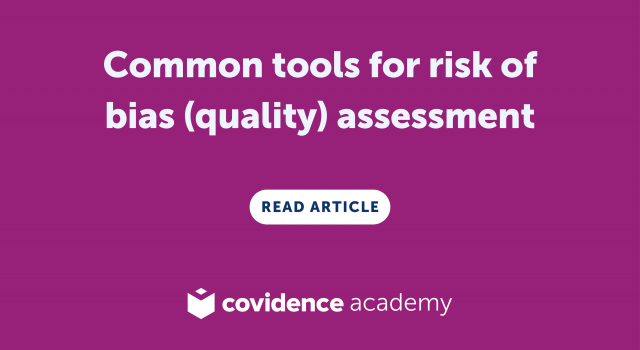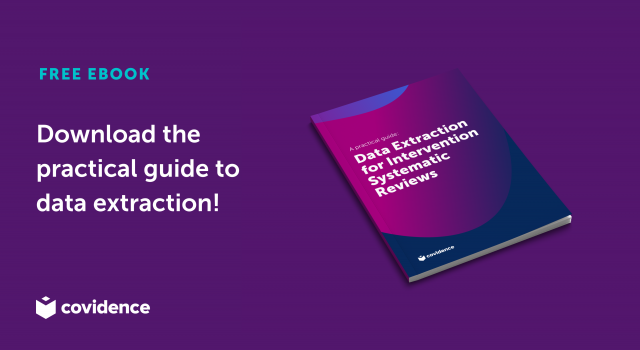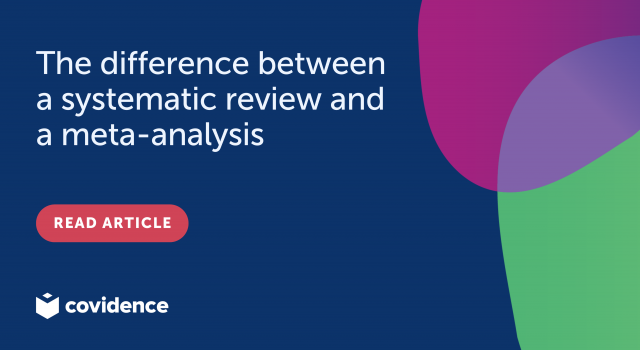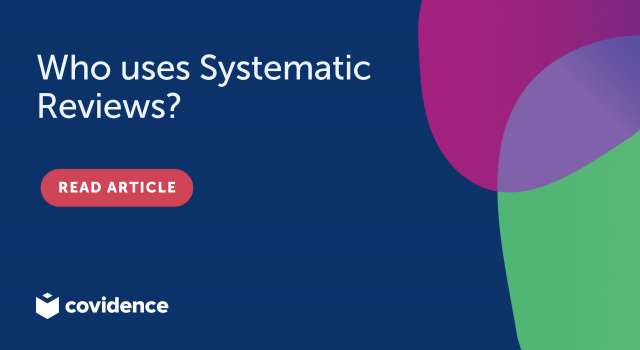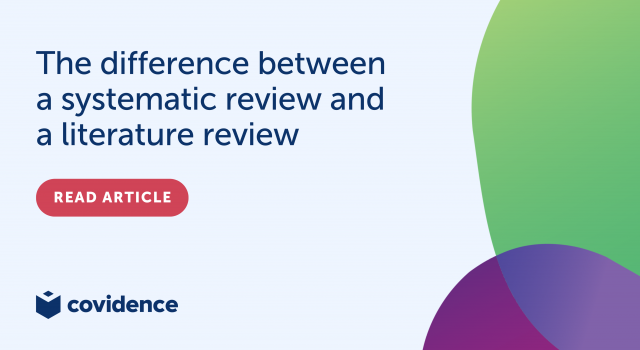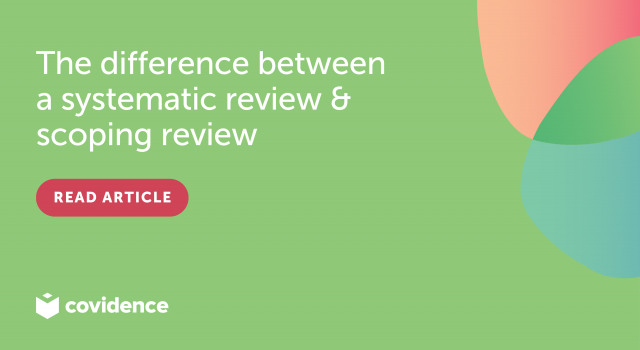Learn about systematic reviews
Protocol
The review protocol outlines the question that the review authors are addressing, detailing the criteria against which studies will be assessed for inclusion in the review, and describing how the authors will manage the review process.
Search strategy
A search strategy is a planned and systematic approach for conducting a search. It involves designing a method that maximises your chances of finding the most relevant and accurate information for your research topic or question.
Screening
Screening is the process of identifying studies from the literature search for inclusion in the review.
Risk of bias
The assessment of the methodological quality, and rigor of the trials or studies included in a systematic review.
Data extraction
Data extraction is the process of extracting the relevant pieces of information from included studies and organising the information in a way that will help reviewers synthesise the studies and draw conclusions.
Choose the right type of review
Systematic reviews
A systematic review is an authoritative account of existing evidence using reliable, objective, thorough and reproducible research practices.
Intervention reviews
Intervention reviews seek to answer questions about the effectiveness of healthcare interventions (medicines, treatments or policies) on the people who receive them.
Literature reviews
A literature review is a type of academic writing that provides an overview of existing knowledge in a particular field of research.
Scoping reviews
Scoping reviews aim to clarify working definitions and conceptual boundaries of a topic or field. They are useful when a body of literature has not yet been comprehensively reviewed, or exhibits a complex or heterogeneous nature not amenable to a more precise systematic review of the evidence.
Rapid reviews
Rapid reviews are a form of knowledge synthesis that follow the systematic review process, but components of the process are simplified or omitted to produce information in a timely manner







